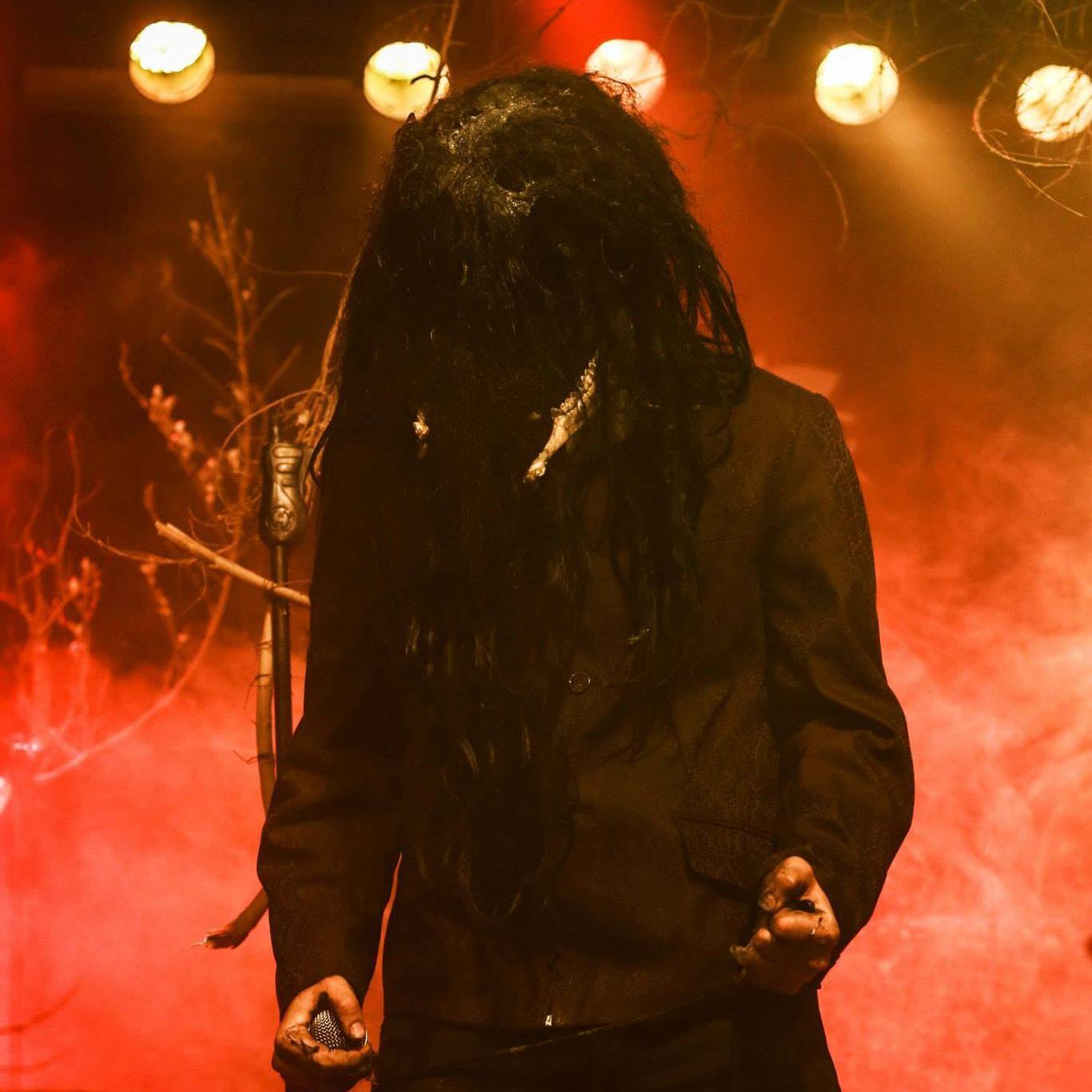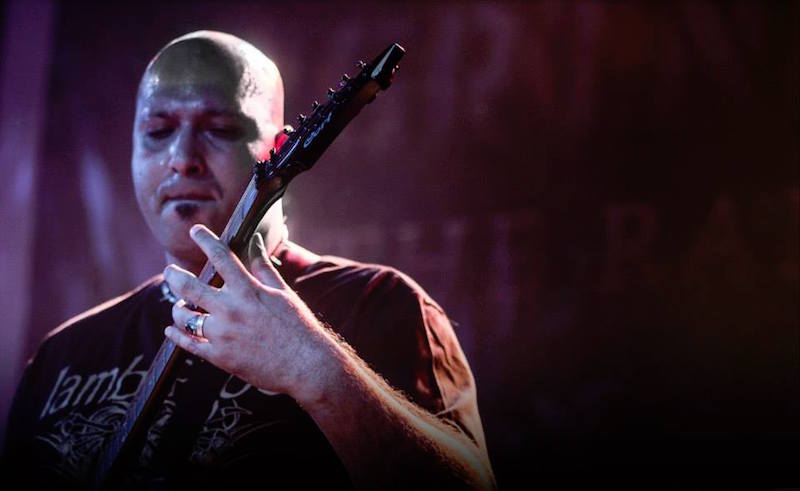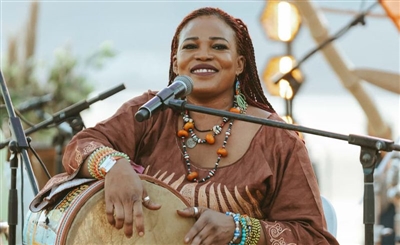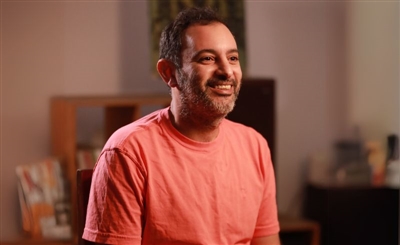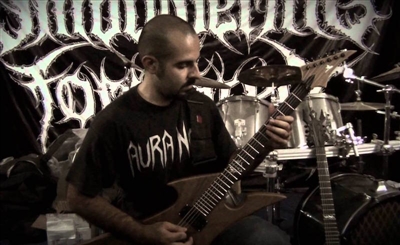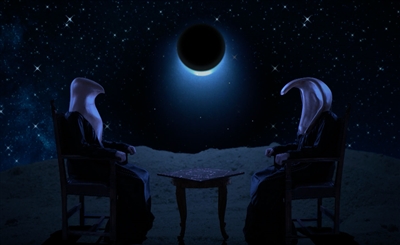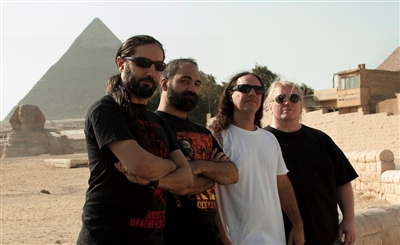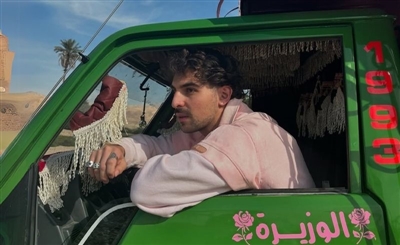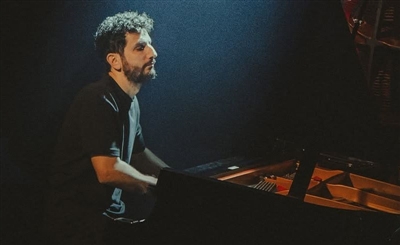Sherief Askar is a multi-instrumentalist and founder of two Alexandria based metal bands. He is the driving force behind Nathyr, a multi-layered atmospheric doom metal group with hints of black and death metal. The band evokes emotions at times crushing, sorrowful and epic. Askar brings virtuosity and originality to the Egyptian metal scene, gifts that have often been denigrated, stolen, and denied. His former band, Odius, in which he was the main composer, was the first metal band in the Middle East to use local instruments such as the nay. He was no longer part of that band when he left to study business management in the late 90's at the University of Albany, New York.
Upon his return to music, Askar started Nathyr, carrying on that original vision he developed with Odius. He composes the music and plays guitar live and in the studio recordings, along with bass and keyboards. Nathyr employs instruments such as the nay, oud, kanoun, tabla, riqq, and duff, all of which Askar handles. The ensemble is filled out by Khaled El-Shazli, Gaber Shemony and newly added Ahmad Samy (on vocals, lead guitar, and drums respectively). Mid-era Samael and Moonspell come to mind when experiencing Nathyr's music, however it does so without seeming to plagiarize.
We talked with Askar, exploring his history and his place in the Egyptian metal community. We delved deep into the lack of originality within the arts in contemporary Egypt, and his thoughts on the direction that music is going in the scene.
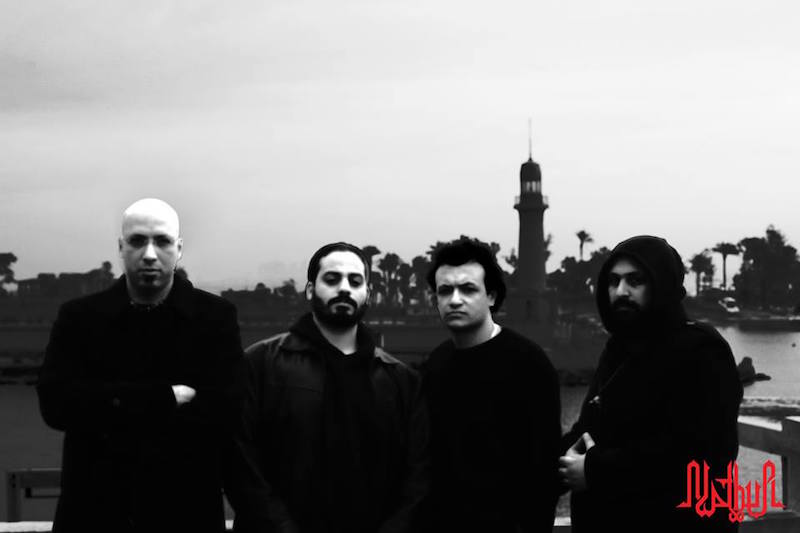
Tell me a little bit about your musical origins.
I'm from Alexandria, but I was born in Kuwait. I returned from Kuwait to Egypt when I was around 17, and I started really getting into rock music. I studied music at a conservatory, which is a school that teaches classical music. I was there for a few months, then I left and got into the current rock trend which was alternative at the time, bands like Nirvana were a huge influence.
Nirvana? That's not a typical metal influence. I like them too and at the time loved them- but most metal musicians don't cite them as an influence.
In our generation (born in late 70's, early 80s) and with pre-internet times, you can't miss a musical chapter like Nirvana and the alternative scene, but in general that was just a chapter, I'm also influenced by other-than-rock genres: disco, blues, jazz, bossa nova... not lyrically, but as a composer all these genres are important for my song arrangements and transitions. The performance of good bands of such genres, it's real. It's a unit, not just guys jamming.
Anyhow, I bought my first guitar- I started playing Scorpions and I got a little into doom metal. You know at the time I heard Cannibal Corpse and I was like "shut that shit off" because it was too much, but doom metal like Tiamat is a great introductory phase to heavy music, it's like getting injected and letting it settle in, so doom metal was a needed introduction to the darker and heavier sound of metal. My Dying Bride, Third and the Mortal, the Gathering. Then I moved into slow black metal like a bit of Emperor and Enslaved. By that point I was able to really appreciate a band like Cannibal Corpse.This was around ‘97.
‘97 was the year the massive arrests happened, when metal people were accused of devil worship. Were you affected?
All my friends packed up their obvious metal belongings and hid them in storage or got rid of them. Some were arrested, some were summoned to be interviewed by the government, some went on national TV to discuss the events. Personally, I volunteered to talk to government officials.
What did they ask you ?
They wanted to make sure we didn't have faith problems, like if any of us were becoming atheists or not religious.
And your response?
I assured them that we weren't doing anything out of the ordinary, and we just make music, and they didn't need to worry.
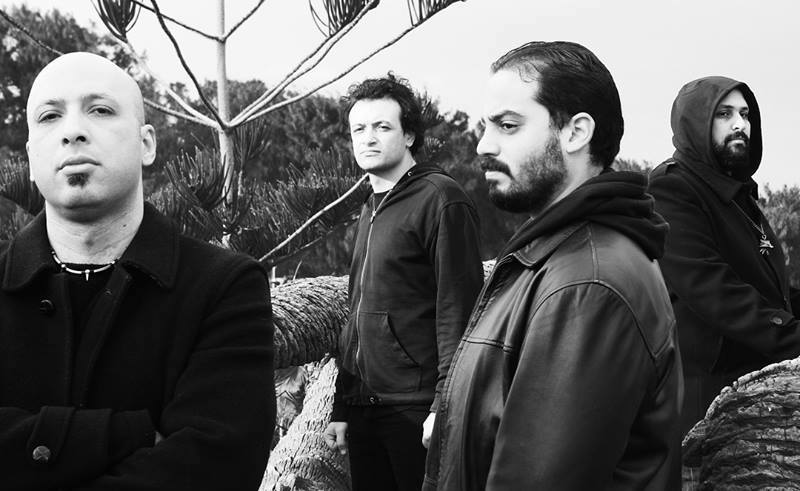
That's funny, they never asked me that. The question that really stood out to me was "why aren't you married?" and I said "I guess I haven't found the right one yet, but i'm not looking either." and they responded with, "that's weird that you're not answering the question." I was very confused.
(laughs)
Moving on, what's the importance of the keyboard in your sound. To me, it’s very melodic, but the melodies can be achieved with guitar, so I often wonder, why add keyboards?
Keyboards are an essential part of the sound that I want to make.
And the other traditional Middle Eastern instruments ?
It's necessary, if you don't use traditional elements, especially at the time when no one was doing this, we would just sound like any other metal band from Europe. A lot of bands here and abroad started to sound the same because they were doing the same thing. It was important to stand out. As Egyptians we have a responsibility to contribute to the art.
A comment I saw on one of our uploads, which made me smile, was "wow, metal reaches into every culture and reinvents itself."
Got it, tell me more about your history and the evolution of your first band.
I was putting a band together, I found a drummer. He was ok, and I needed to find a keyboard player. I found a guy who was an amateur, but I thought "ok, I can probably teach him to play and with practice he will get better.” The keyboard player was also the vocalist, he wrote really shitty lyrics. They came up with a band name, and I was really against it. However, that was also the time where I was starting my move to the US to study. When I returned in 2003, they started acting like I was the one who had just joined them, when in fact I had actually started it, not just by assembling the members but by writing the music. I had written 3-4 songs and I taught them how to play them. Obviously there was a huge falling out. Before I left I organized a show and it was very well attended by about 400 people.
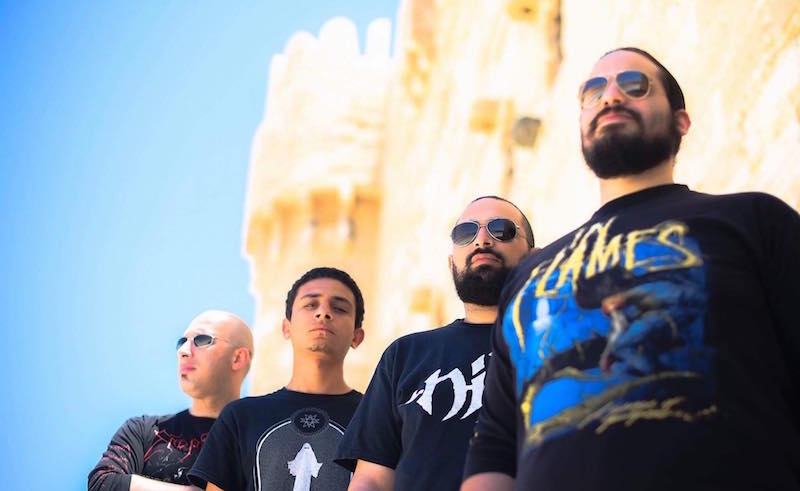
For a band performing the first time, that’s amazing, how did you put that together?
It was my band and about three other bands, so I had the idea of splitting all the costs of the show between all band members, so if each band has 4-5 members, and there are four bands, that's about 20 people. and splitting the total cost, of venue and equipment rental, it was a very small amount for each person.
There really weren't any bands, still there aren't that many now, but at the time it was worse. So it was a good small community and we all focused on helping each other. The ticket prices were very low, however we not only broke even, but each of the bands were actually able to benefit financially. Although it wasn't much by any standard it was still a very positive development.
Your last sentiment is highly lacking these days unfortunately.
AS: Definitely.
So since this was post ‘97, who came? Younger generation? Or people who were the old schoolers who were imprisoned in that fiasco?
It was mostly a new generation crowd. There was definitely residuals of the old school, but most of those people were new younger faces.
I remember that a few years after your band had made itself public, I met a girl on a forum, who claimed she was a vampire. Of course, I found that intriguing and we met at a cafe, and she introduced me to that first band of yours. I can’t recall the album title, it had a brown cover.
Yes that is my writing, and I actually play on it. But they remixed it, added more black metal elements, and claimed they had written it all, without giving me any credit.
Wow, that's sad. There are two copycat bands here: a ripoff of Nile (the South Carolina based Egypt themed band), but in a more watered down way, where they will play an obvious Slayer riff then add a harmony from Nile. Another is Behemoth ( a Polish, multi-cultured extreme metal band) copycat. They take Behemoth's riffs from different songs in an album and stitch them together. Their singer actually had the audacity to ask me once, "Why does everyone say we sound like Behemoth." I smiled.
(laughs) yeah, I have a story about one of those guys
What happened?
We were friends at the time, and again there weren't that many people into extreme music, so it was exciting to be around others who shared your passion. Even if they were amateur players. I went to his place, and I said check out this riff, and I played it to him. he said it was "ok," then a few minutes later after clicking on his computer, he turns around and asks me to play it again. Right before I started playing it, I heard one more click of the mouse. I asked him what he was doing. He denied doing anything, but it turns out he actually recorded it. A year later that riff is in one of his songs on his band's album.
I don't even know how to comment on that. Moving on again, let's get back to the formation of Nathyr.
Right. From the point at which I had left my first band, I started to do what I wanted to, mostly by myself, no vocals or lyrics in mind. That’s when I came up with Nathyr.
What does Nathyr mean? Why did you choose it to represent your band?
It means "the warning" or a "bad omen." We decided to keep its perspective, in order to keep up the theme, so the name Nathyr is Arabic. It looks metal and it sounds fresh to the ears. It also fits our lyrical theme about wars and epic battles in the Mamluk era.
How did living in New York affect you, and subsequently the sound of Nathyr?
I was jamming with someone who was not into metal. He explained to me the idea of "not being a wall of noise." People often get so caught up in their own instrument that they forget to generally be cohesive. You have to steer the band with a harmonious collaboration; this increases the dynamics. This was just bar music, covering Beatles songs and such. I unplugged from everything I thought was constant in my musical experience. Listening to different music, but also different things In the music itself, from production to how an instrument is used. I was soaking in a lot of knowledge, and you use that in your art. I saw a lot of punk bands as well. l wrote "Lords of Wargazm" which is to this day our fan-favorite song. I didn't have a multi track device then so I had no way of recording. Instead, I wrote up the song and remembered it for years to come. I wrote 2 other songs too. I usually write songs in 3. Every time I write a song, I end up writing 2 more with it.
What instruments did you play in the beginning?
I started with the piano. My father was a bass player, but he had to quit. Music was in my blood, but I didn't enjoy piano as much, so I asked my parents if I could play the trombone. They said it was ok, but I had to play on the roof. This wasn't good, because in Kuwait, even when you're standing in the shade, it’s still 55 degrees. Later I started to play everything. I started learning guitar, and then I forced myself to learn keyboards on a professional level. I got quite immersed in the production of the songs, not necessarily production in the sense of recording a record but within the dynamics of the songs, so I also added the vocal markers.
How would you describe the sound? You don't need to find a category but is there a description that you like? And that you feel would portray your art?
Progressive Middle Eastern Metal works for me.
What are your music influences?
With non-metal, I would say Om Kalthoum, and the composer Ammar El Sherei. In metal, Arcturus, My Dying Bride, Tiamat, Ulver, Katatonia, Moonspell, Amorphis, Bloodbath.
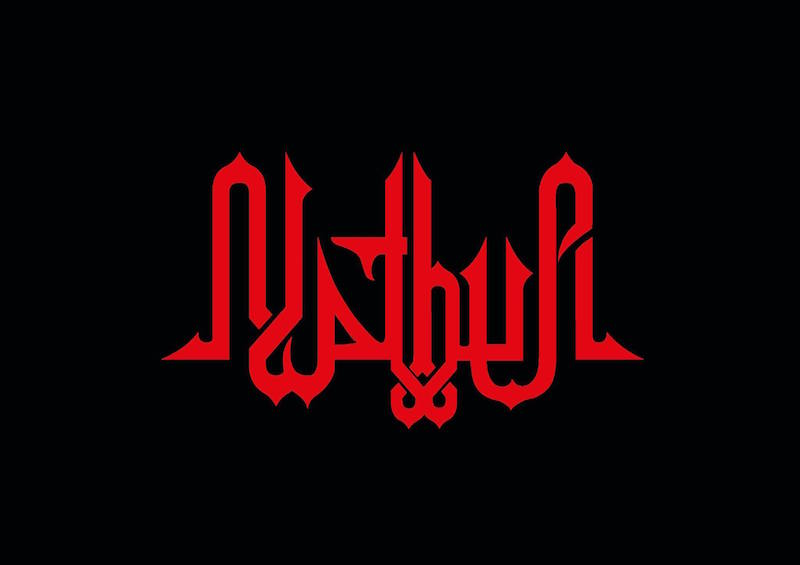
In 2016, Nathyr released a single titled “Almamluk,” which is a great display of their strengths. Askar is currently working on the follow up album to the 2015 “As the Legacy Unveils” with another crushing symphony.
Follow Nathyr on Facebook, Youtube and Bandcamp.

